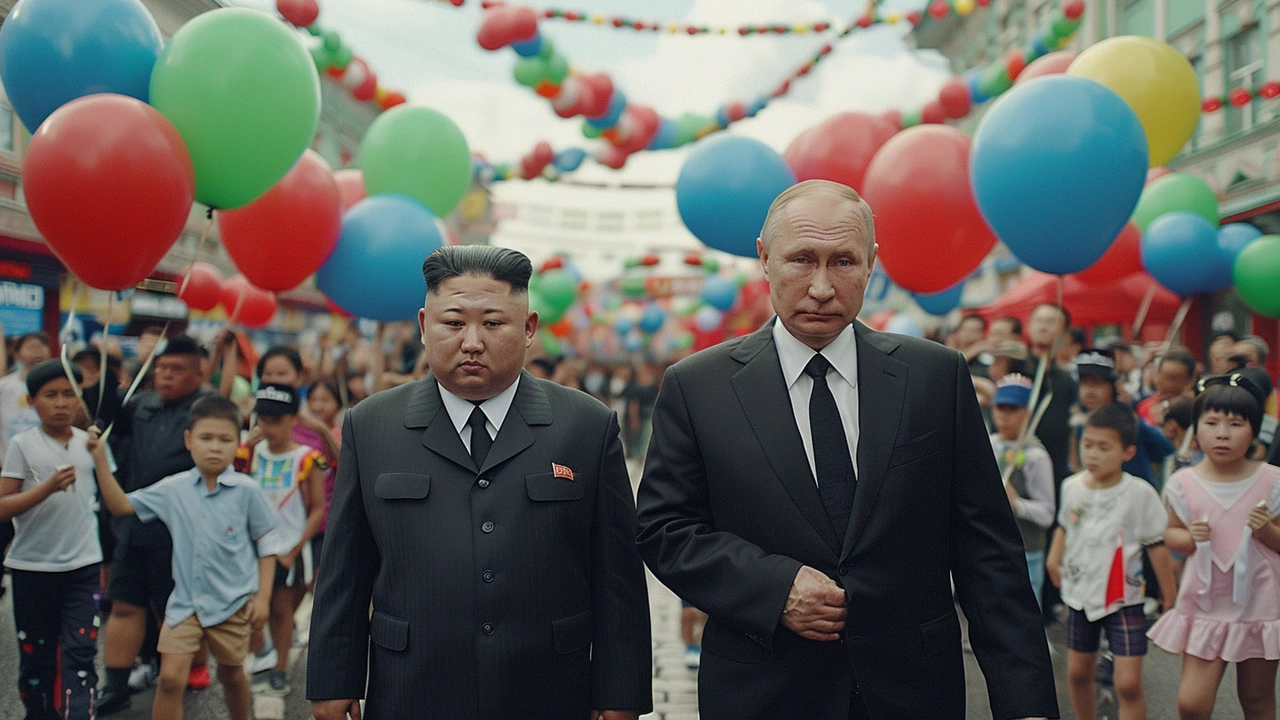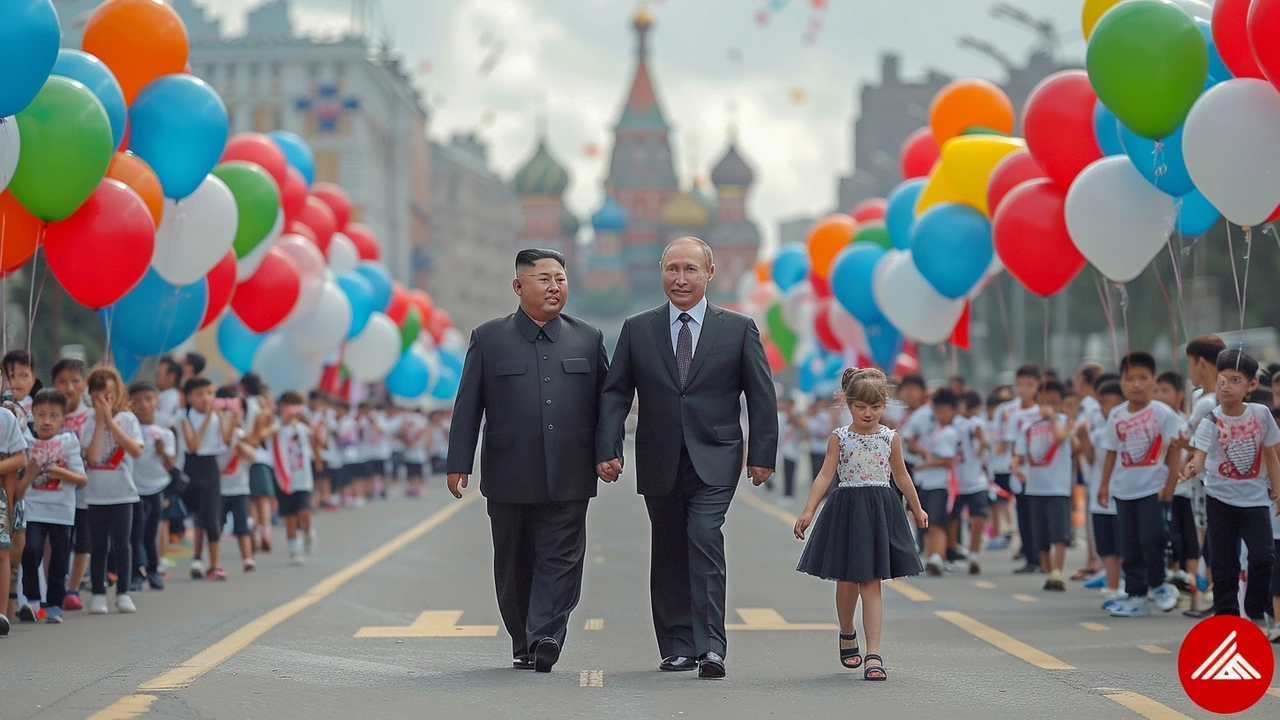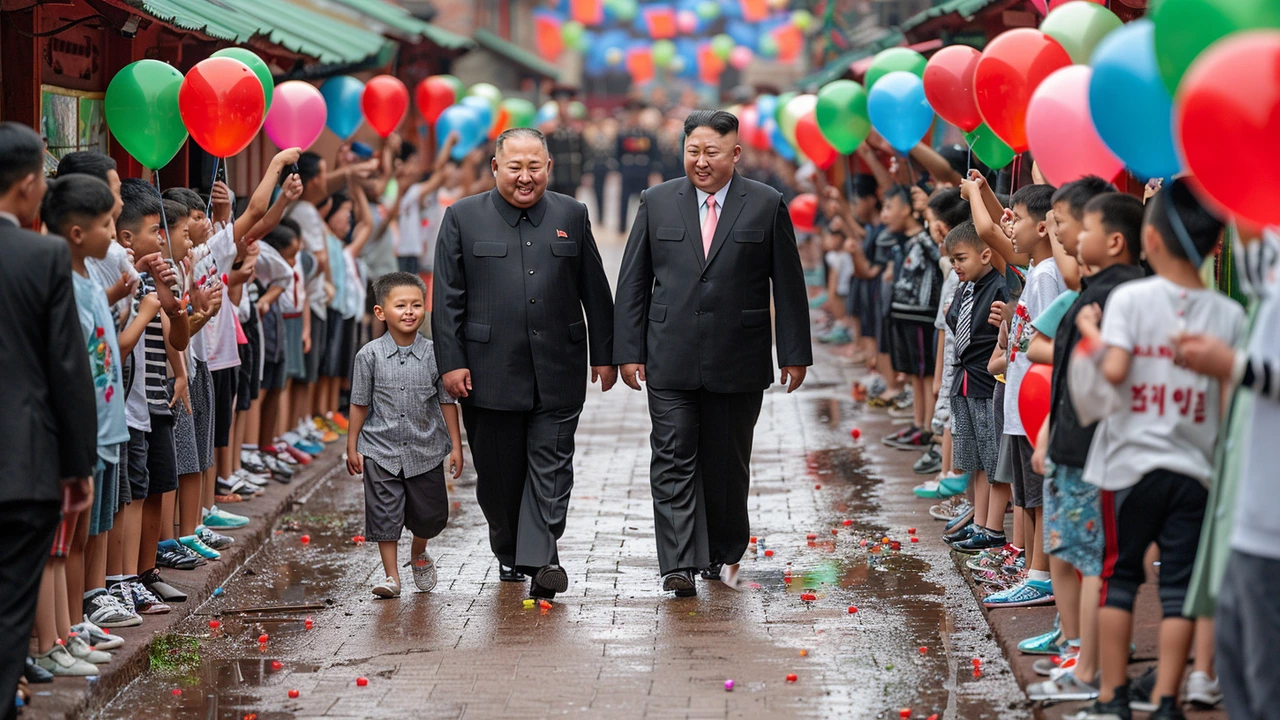Kim Jong Un Pledges Full Support for Russia in Ukraine Amid Visit from Vladimir Putin
In a significant development on the global stage, North Korean leader Kim Jong Un extended his unwavering support for Russia's actions in the Ukraine conflict during a recent visit from Russian President Vladimir Putin. The high-stakes meeting, held in Pyongyang, focused on strengthening economic and military cooperation between the two nations, both of which are under severe international sanctions.
The backdrop for this meeting is the escalating tension between Russia and Western countries, primarily the United States. During the discussions, Kim Jong Un emphasized North Korea's full backing of Russia's endeavors in Ukraine, a stance that underscores a growing alliance between Pyongyang and Moscow against what they perceive as Western attempts to impose a unipolar world order.
Strengthening Ties Amid Sanctions
The gravity of this encounter lies not only in the political assurances but also in potential military and economic strategies to counteract Western dominance. Vladimir Putin expressed profound gratitude for North Korea's support, reaffirming a commitment to a multipolar world. This mutual support system is crucial for both nations as they navigate the obstacles posed by international sanctions. North Korea, grappling with United Nations Security Council sanctions due to its nuclear weapons program, sees this partnership as a vehicle to circumvent economic isolation.
On the other hand, Russia, bearing the brunt of sanctions from the United States and its Western allies following its invasion of Ukraine, views North Korea as a key ally in sustaining its military operations. The convergence of these two nations' interests raises profound questions about global security and stability.
Potential Arms Arrangement
Chief among the concerns is the possibility of an arms deal. Allegations have surfaced that North Korea might supply Russia with artillery, missiles, and other military equipment. In return, Russia is purportedly providing economic aid and technology transfers to boost North Korea's nuclear weapons and missile programs. Such an exchange could significantly alter the dynamics of the Ukraine conflict and raise alarms within international relations circles.
The implications of such a partnership do not end on the battlefield. Technology transfers could accelerate North Korea's military capabilities, potentially heightening the threat it poses regionally and globally, particularly to South Korea and Japan. This shifting balance of power necessitates a re-evaluation of existing diplomatic and military strategies in East Asia and beyond.

Expanding Economic and Cultural Cooperation
Beyond military considerations, the meeting between Kim Jong Un and Vladimir Putin also focused on economic and cultural cooperation. They deliberated on creating trade and payment systems that operate independently of Western financial institutions. This move towards economic self-sufficiency is a strategic maneuver to mitigate the impact of sanctions.
Trade between the two countries is envisaged to cover a spectrum of sectors, including tourism, culture, and education. Joint ventures in these fields not only promise economic benefits but also strengthen the cultural ties between the countries. Enhanced cooperation in education and culture facilitates the exchange of ideas and the fostering of mutual understanding.
Global Reactions and Future Outlook
The international community has closely monitored the developments of this high-level meeting. Experts caution that deeper Russia-North Korea ties could have wider ramifications, potentially exacerbating geopolitical tensions. The alignment between these two nations stands as a counterbalance to Western efforts to isolate and penalize them for their controversial actions.
As Russia continues facing resistance in Ukraine, the support from North Korea, however symbolic or material in nature, signifies a critical partnership. Whether this relationship will yield substantial outcomes or remain a strategic posture is yet to be seen. Nevertheless, the very public nature of the meeting sends a strong message to the global community about the emerging alliances in a rapidly changing geopolitical landscape.
Looking ahead, the situation demands close monitoring. The discourse around this partnership is likely to evolve as both countries navigate the pressures from international bodies and their commitments to this newfound alliance. The robustness of their cooperation could set a precedent for future international relations, compelling policymakers worldwide to rethink their strategies.

Conclusion
In essence, Kim Jong Un's pledge of full support to Russia amidst Vladimir Putin's visit signals a pivotal moment in international politics. The strengthening of ties between North Korea and Russia highlights the complexities and shifting allegiances within global geopolitics. As these two nations forge ahead with their collaborative efforts, the repercussions of their partnership will undoubtedly ripple across continents, impacting diplomatic, military, and economic landscapes globally.
